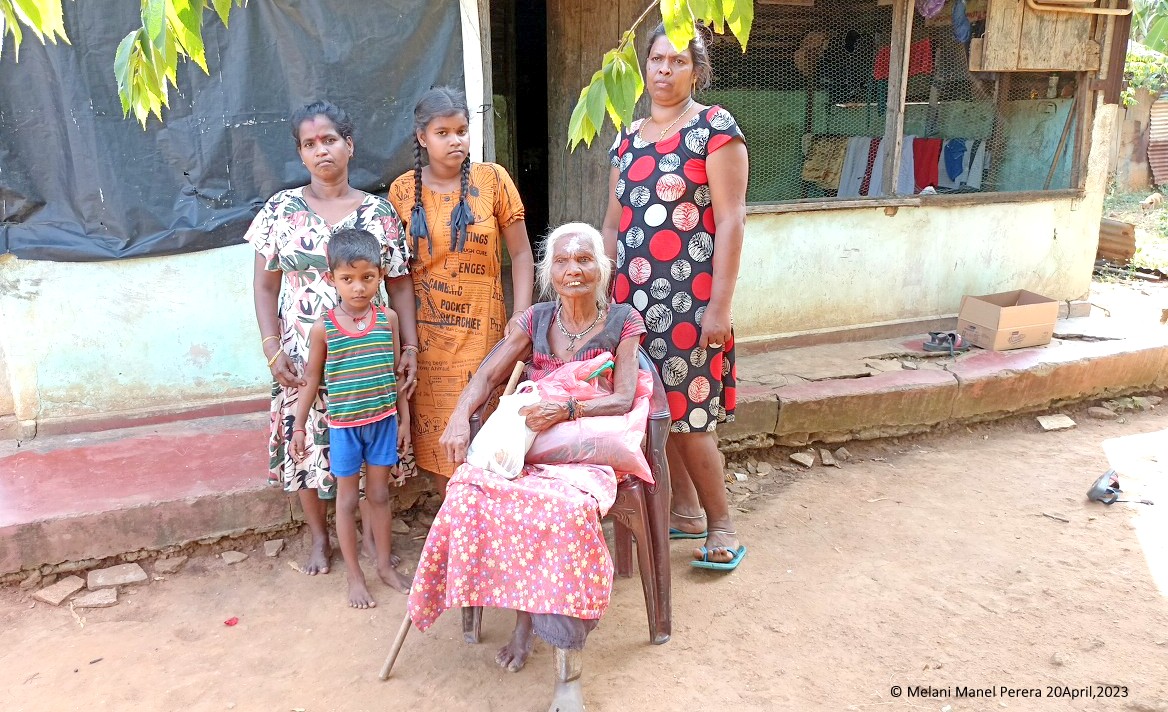Abandoned with their children: the agony of Sri Lankan widows of the long war
Fourteen years after the end of the conflict between the army and the Tamil militias in the North and East regions, tens of thousands of women who have lost husbands, fathers and brothers are still struggling to survive in a context aggravated by the economic crisis. "We have only one dream: help to educate our children".
Jaffna (Asia News) - It has been 14 years since the end of the three-decade war in Sri Lanka. One group of people celebrated the 'victory', another who went through the most unpleasant experiences of the war remembers 'their tears' after losing everything. Tamil and Sinhalese women in the North and East, pushed to become 'breadwinners' by the war, are still trapped in trauma, poverty, social violence, cultural and religious prejudice and psychological tensions.
According to UN estimates, between 40,000 and 70,000 civilians in the north and east of Sri Lanka died in the last months of the conflict, which was declared over on 19 May 2009. Another 150,000 had been killed in 30 years of fighting between the government army and separatists. Some 65,000 men and women have joined the ranks of the 'missing', while tens of thousands of other families have been dragged away from their traditional lands and labelled 'displaced'.
Some are still living in camps set up on the Jaffna peninsula, in frustration and unbearable despair. According to Nagamuttu Inbanayagam, coordinator of the National Fisheries Solidarity Movement (NAFSO) in Jaffna district, there were 48 IDP camps in the north alone, and currently there are still nine in Jaffna alone. According to official data updated to 2020, there are 67,000 households headed by women in the North and 127,000 in the East.
In a conversation with 50 of these women - Tamil, Sinhalese and Muslim, who live in Mannar, Mullaitivu, Kilinochchi, Trincomalee and Kalmunai - they told us that they receive monthly aid from the government, but the amount has remained the same as in the past and today, with the rise in prices, it is no longer enough to live on. Apart from a 'food parcel' provided during the pandemic and other disasters, there has been no other help or encouragement from the government.
Although they received a cow, a goat and some chickens for sustenance, only a few managed to earn a living. Some explained that these livelihoods failed because the place where they were living was not adequate and at the same time they also had to take care of several young children.
Only the financial assistance provided by non-governmental organisations, churches or related institutions, and which is still provided from time to time, barely helped them to survive, but without any kind of adequate care programme for their children.
Some of these women who became breadwinners because their husbands, fathers or brothers were kidnapped or killed in the war are now elderly. Others have died. Some have become disabled and mentally ill, others suffer from mental and physical stress that makes them weaker than their age. "We do not know when we will get relief from this oppression that has been imposed on us," they recount.
Arumanayagam Carmalittra - 53 years old, mother of five - lives in Mannar. Carmalittra's husband, who worked as a teacher, due to the impossibility of maintaining contact with the outside world during the war and the failure of health services, contracted a fever and died in three days at the age of 45 without being able to seek medical help.
At the time, she was responsible for raising two girls and three boys between the ages of 6 and 14. She was not entitled to any government support because her husband had only been a teacher for 10 years.
In 2008, one of Carmelittra's children disappeared while travelling from Paisalai to Mulankavil to visit her grandmother and relatives. Complaints were filed with the police and the Human Rights Commission, but no information has been received to date.
M. Najima - 49 years old - lives in Kalmunai, Eastern Province. Her father, who had gone to sell goats, disappeared during fierce fighting between the LTTE and the Indian army. The mother became mentally ill, unable to raise the children of the family.
Najima had to bear the burden of the family and in time, after her mother's death, she was forced to marry a man 30 years older than her by whom she had a daughter. Her elderly husband also died recently and she survives on a meagre income sewing clothes. "Rather than occasional assistance,' she says, 'we need a systematic programme for the education of our children.
Organisations working to support these women report that for Muslim women who have become widowed housewives, the oppression is even harsher: the poverty and injustices they face are not even openly discussed.
Anne Rita Vincent de Paul - a 49-year-old mother of six from the village of Valaiippadu - also lost her husband to a grenade attack on the bunker where they lived in 2009. She herself was wounded in the chest by gunshots while she and her children were seeking protection.
They lived in the Ananda Coomaraswamy camp before returning to their village of Valaipadu. With the help of Caritas Hudec of the Jaffna diocese, she rebuilt her house and managed to get back on her feet with a business selling dried fish. But today the challenge is to support her four children who are studying in the midst of the current economic crisis. Education for them today remains her only dream.







.png)










